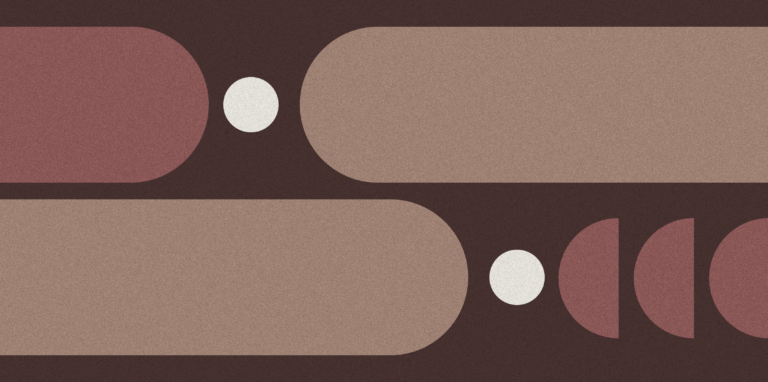Tenderness, and Blessing
With Krista
This retreat doesn’t so much end as open — into a vision of standing on new ground together with others: metabolized community.
We let paradox settle into our sense of what is possible — including tenderness in interplay with power, and a life-giving calling of blessing.
Question to Live
Who comes to mind when I hear “tenderness in interplay with power”? |
Integration Step
“Be a blessing.”“Be a blessing.” Remember the practice of compassion as Roshi Joan so hopefully took it apart for Krista on her first day in Dharamsala — the idea that compassion is not a thing you can point at: “compassion always looks like this, or compassion always does that.” It’s more an intention and orientation to be compassionate, and then will be discernment in any moment about what that looks like with the particularities of the person or the situation in front of you. “Being a blessing” is the same thing. It is as much about modeling and presence as it is a defined offering or action. Begin. Blessings. |

Transcript
Hello and welcome to this last session of our retreat, unusually centered around an experience that I’ve brought to you in the form of an audio journal. I began by talking about what drew me to this notion of “compassionate leadership” — the theme of the Dharamsala gathering; that imperative to care that feels so alive in our world now. And the experience, here, of seeing this being carried and shared among strangers who became beloved friends and metabolized communally. And as we end, there are no conclusions here. There are no simple takeaways, aside from the profound experience that I hope I’ve conveyed to you, and that I hope you perhaps feel that you are now part of in some way — the experience of standing on new ground together with others.
And of course, from this new ground, everyone at this gathering — each of us — returns to a life of complexity, and contradiction, and drama. Also, of ordinary time and ordinary tasks, of exhilaration and heartbreak, of disappointment and possibility.
I’m left pondering a final, beautiful word that can also — like “compassion,” like “care” — sound too soft to meet all of our challenges. And that word that is very dear to me is “tenderness.” I have named this across these last 20 years, as a quality of the wisest people I’ve known, the wisest people I’ve been in conversation with. What I’ve named, also, is that in these wise and graceful lives, tenderness is in a tension and interplay also with power, with personal strength. And that feels like a paradox. It’s a contradiction that our culture hardly knows how to make space for. But this paradox was very much another thing that was on display in Dharamsala. A strength of searching as much as of knowing, and a really vital sense and expression and practice of tenderness.
Tenderness does not entertain a pretense of perfection, of being perfect or of not needing others. And I’ll say something again that I’ve said in these sessions: I do feel that a new capacity for this kind of tenderness — I see this as a gift of new generations in time. And I also see it as a gift to all of us of the post-2020 world.
We have been walking around and structuring our life together — our institutions to some extent, our families, our communities — around aspirations of being high functioning, and being able to bracket out some of the messiness of life when we’re getting down to business. But the sense of that tenderness in interplay with power that I have experienced in wise and graceful lives is that it knows that our flaws, our frailty, what goes wrong for us, our imperfections — that these are as much a part of our wholeness, of what gives us the possibility to become whole, loving individuals, as what has gone right, as what we know as our strengths. And again, I think this reality of each of our essential, tender nature, and our need of tenderness for others, has become unseeable, undeniable, irrepressible.
It’s interesting to think also about “tenderness” and “compassion.” Is it a synonym for compassion? Is it a quality or a manifestation of compassion? Maybe it’s more a sign that compassion is possible or that it’s present. Maybe it’s a capacity that helps us feel and internalize our kinship with others despite it all. Our belonging to each other.
This mysterious, pervasive underlying truth that we are all one is an ultimate reality: that my wellbeing and flourishing are utterly linked to yours, that they are linked to strangers across the planet. Whether that makes any logical sense, whether we live as if it is true.
So we land back with complexity, with the complexity of something very beautiful and life-giving. Tenderness is something that we can’t walk around carrying on our sleeve, as they say, all the time. That’s not how this world works. But we can touch it in moments. When it breaks in, it does shape us. It shifts us. And Richie Davidson’s neuroscience tells us that an experience like that of opening ourself to something like tenderness, something like compassion, leaves an imprint that we can reach back to and strengthen by practicing some more.
The last day we were together in Dharamsala, one of the Rinpoches, one of these wise spiritual teachers, spoke about “blessing.” And that’s where I want to end here. That’s what I want to leave with you. Like compassion, blessing is a notion, a word, an action that crosses our traditions even amidst the wild particularities and the differences of ritual and tradition between something like Tibetan Buddhism or the Christianity I grew up in. And when I hear echoes in the depths of very, very different traditions like this, I pay attention.
So I hear the word blessing out of the mouth of a Rinpoche, and it runs through my spiritual homeland. And in fact, the notion of blessing and really, practices for blessing, occur in some form in every spiritual tradition I know.
I want to share with you what I saw as I sat with that group of young people the last day after we had spent two mornings with His Holiness the Dalai Lama. It was very clear to me, it came into relief that they had come to ask for a blessing — to receive a blessing from this extraordinary spiritual leader.
But what had happened with equal force is that they had become a blessing. To each other, to me, and I watched them be a blessing to His Holiness the Dalai Lama. I thought about how this person who became a refugee when he was younger than most of them, in the tumultuous middle of the last century, could look out in the tumultuous early years of this century and see this beautiful, stunning reality of their far-flung lives and passions and lived questions. Their intention to get into a right relationship with grief, and with life, and with care — to bring appropriate struggle and intentionality to the possibility of wholeness, of oneness, of compassion.
The invitation here is for each of us to “be” a blessing. It strikes me that this is very much like the practice of compassion as Roshi Jones, so hopefully took it apart for me on my first day in Dharamsala — that compassion is not a thing you can point at: compassion always “looks like this,” or compassion always “does this” or “is this.” It’s more that we have an orientation to be compassionate, and there’s going to be discernment in any moment about what that looks like with the particularities of the person or the situation in front of you, what compassion is. And I think being a blessing is the same thing. It is as much about modeling and presence as it is a defined offering or action.
As you ponder this invitation for your every day, I want to offer some wisdom from a guest of mine, somebody I interviewed in the complicated year of 2021, Rabbi Ariel Burger. I asked him about his writing, about the principle of blessing in Jewish thought and life. And I said to him something that I’m feeling now: I feel like when you get into this territory of talking about blessing, it kind of imparts a sense of dignity and relief to think that blessing is something we can each be in the world.
Ariel Burger, who was a student of the great, wise Elie Wiesel, said that these three words, “be a blessing,” were a fundamental principle for him that encompassed a lot of Jewish tradition. There’s a way that a human life is a blessing — there’s a witnessing to one another’s blessings, to blessings we bring. He pointed me to something that fascinates him in the Hebrew language, that the Hebrew language is profound on this: that the word for blessing, the same letters have this mystical, muscular quality in Jewish sacred text — that these letters are etymologically connected to the word for knees, the part of the body that is a knee. So we are back at body parts as metaphors for spiritual gravitas. And here’s what he said: the way that knees are what you need to bend when you carry something heavy — and there’s a way that a blessing is heavy to carry. If someone blesses you, they really see you and they give their seeing of you to you. He said there’s a certain sense of responsibility that comes with that. And to be witnessed is a responsibility, too.
Rabbi Burger said to me, what I repeat all the time — I’ve repeated it in this audio journal: we’re being asked to carry a lot right now. We’re being asked to carry our own lives, and that’s heavy enough. And in some sense, we’re aware of carrying the suffering of the world and people around the world, and that is hard, and it is daunting. Finally, he said: “a blessing is something that’s heavy and at the same time, it lifts us up. It’s liberating to live for something bigger than myself. It frees me of my own smallness, my self consciousness, my anxieties.” And then he said, circling back to the key word of this retreat: “compassion is the greatest medicine for anxiety, the greatest medicine for small mindedness.”
There’s a way that we can be a blessing to each other, and bear witness to one another, and tell one another’s stories, and really get in there with one another with a lot of openness — and that will lift us up. That’s what a blessing really is.
I noticed sometime in the last couple of years that I started — often when I was saying goodbye to people or ending an email or ending a conversation — that I started ending it with the word “Blessings.” And I’ve noticed that this has a lovely effect on me and on the person receiving it. So it feels wonderful to end this time with you having borne witness to something beautiful and complicated, and having had the great gift of metabolizing it in this audio form so it can continue to shape me — to thank you for joining me, and everyone else who will experience this across time, with blessings.
Blessings to you, until we meet again.
